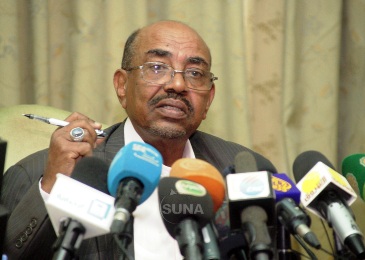Sudan’s Bashir renews commitment to achieve lasting peace
February 10, 2016 (KHARTOUM) – Sudanese President Omer al-Bashir Wednesday has renewed his government’s commitment to exert every possible effort to achieve a lasting peace settlement and ensure that the national dialogue tackles the entire issues of the country.

Following the meeting, Menkerios welcomed the dialogue initiative launched by President Bashir, saying the call for holding an inclusive dialogue to resolve Sudan’s problems represents a positive step.
“We encourage such a call and support it to become more inclusive to end the war considering that the success of the dialogue is contingent upon stopping the war”, he said.
The UN official further pointed that the national dialogue was met with regional and international support, saying the real comprehensive dialogue is the only means to achieve a lasting peace in Sudan.
In January 2014, Bashir called on political parties and armed groups to engage in a national dialogue to discuss four issues, including ending the civil war, allowing political freedoms, fighting against poverty and revitalising national identity.
The dialogue conference was inaugurated in Khartoum on October 10 th 2015 amid large boycott from the major political and armed opposition.
The political forces members of the opposition alliance National Consensus Forces (NCF) and other parties refuse to take part in the dialogue conference before the creation of a conducive environment and the implementation of specific confidence-building measures provided in a roadmap proposed by the African Union mediation team.
Some significant political parties, such as the National Umma Party, the Reform Now Movement and the Just Peace Forum, that approved the process in the beginning. But later they suspended their participation, criticizing the government refusal to postpone the general elections and the lack of political freedoms.
Also, the major armed movements in Darfur, South Kordofan and Blue Nile refrained from participating in the dialogue conference citing similar demands.
